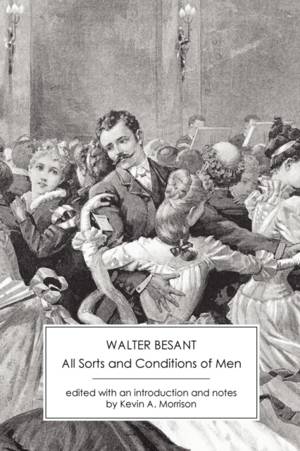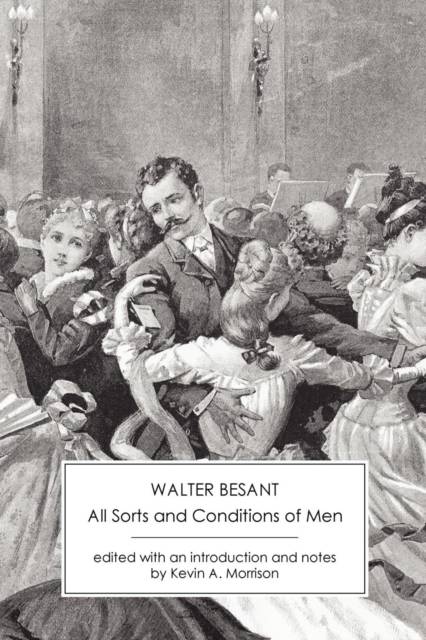
Door een staking bij bpost kan je online bestelling op dit moment iets langer onderweg zijn dan voorzien. Dringend iets nodig? Onze winkels ontvangen jou met open armen!
- Afhalen na 1 uur in een winkel met voorraad
- Gratis thuislevering in België vanaf € 30
- Ruim aanbod met 7 miljoen producten
Door een staking bij bpost kan je online bestelling op dit moment iets langer onderweg zijn dan voorzien. Dringend iets nodig? Onze winkels ontvangen jou met open armen!
- Afhalen na 1 uur in een winkel met voorraad
- Gratis thuislevering in België vanaf € 30
- Ruim aanbod met 7 miljoen producten
Zoeken
€ 32,95
+ 65 punten
Uitvoering
Omschrijving
First published in 1882, All Sorts and Conditions of Men chronicles daily life in the East-end district of Whitechapel road, where people go about their business with an air of quiet resignation. The arrival of Miss Kennedy, who wants to establish a dressmakers' co-operative, causes great excitement, especially when it transpires she is a friend of Angela Messenger, heiress to a local brewing fortune. Meanwhile, Harry Goslet learns his is not an aristocrat but the son of a lowly army sergeant. Determined to return to his true roots, he moves to the East End, where he ends up in the same boarding house as Miss Kennedy. The two discover a mutual interest in social reform, imagining a People's Palace of delight where the working classes can enjoy recreational activities as a reward for their labours. Nothing is quite what it seems in this magical microcosm, and soon their dreams are realised in the shape of a shimmering edifice that transforms the local community. This edition includes: a critical introduction, explanatory footnotes, suggestions for further reading, and extensive contextual material.
Specificaties
Betrokkenen
- Auteur(s):
- Illustrator(s):
- Uitgeverij:
Inhoud
- Aantal bladzijden:
- 492
- Taal:
- Engels
Eigenschappen
- Productcode (EAN):
- 9781906469337
- Verschijningsdatum:
- 30/11/2012
- Uitvoering:
- Paperback
- Formaat:
- Trade paperback (VS)
- Afmetingen:
- 152 mm x 229 mm
- Gewicht:
- 653 g

Alleen bij Standaard Boekhandel
+ 65 punten op je klantenkaart van Standaard Boekhandel
Beoordelingen
We publiceren alleen reviews die voldoen aan de voorwaarden voor reviews. Bekijk onze voorwaarden voor reviews.











